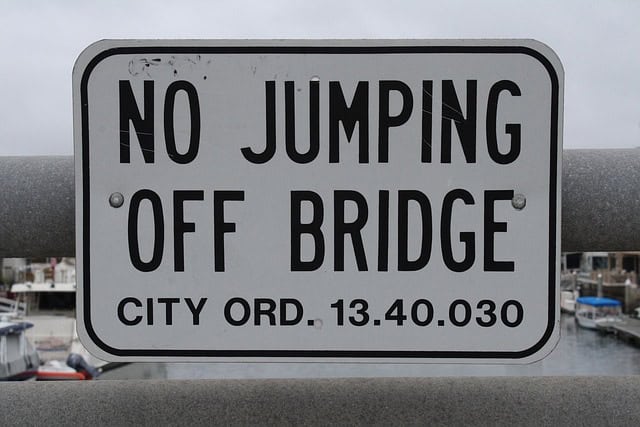
As a Partner of the Organization, you may use your reasonable judgment to interpret this Constitution and any Governance within the Organization, including how these apply within a specific situation, and then act based on your interpretation. (Section 3.4)
To understand how Holacracy works, you need to understand a distinction embedded in the constitution between authority (i.e. what you can do) and good judgment (i.e. what you should do). Just like there’s no law preventing you from juggling chainsaws, but that doesn’t make it a good idea.

While the constitution (and the governance you create out of it) define explicit authorities, i.e. what you can and can’t do, it doesn’t tell you how or when to use that authority.
For example, if your Consulting role’s purpose is to “Serve Customers,” then you have the full authority to take any action or make any decision to serve that purpose. But that doesn’t inherently mean that anything you do is a good idea (say, letting them not pay their bills).
And this is an important point because rather than try to prescribe exactly what “good judgment” means in every situation…for every person…filling any role, Holacracy essentially says, “Look, we can define expectations and authorities of each other, but we must leave room for each individual’s interpretation and good judgment.”
Without that space, we don’t have any real responsibility. We can’t make any real choices or experience any real growth.
Think of it this way, you have the full authority to completely ignore helping an old lady across the street. There are no laws forcing you to help. But the absence of a requirement isn’t equal to, “Don’t do it.”
It just means use your own judgment. And in fact, it’s because the rules don’t require it that true generosity of spirit exists. The same is true with Holacracy. Just because the rules don’t require it, doesn’t say anything about whether or not you should do it.
There’s no domain on the website, should you just change it? Use your judgment. You’re accountable for “Aligning practices with local regulations,” but what does that mean? Should you brainstorm ideas or just make a decision? Use your judgment.
To make this a little easier, here are two rules-of-thumb…
How Much Input?
Ask yourself, “How much input is this decision worth?” If it’s creating a new business line, then sure, gather lots of input. But if it something that can easily be changed tomorrow, then probably not worth getting any input upfront.
Share Intent
Rather than waiting for buy-in, share your intent and move ahead. For example, “I intend to mail out the new flyers on Friday. If anyone has a good reason why that’d be a bad idea, let me know before then.” Nothing wrong with being transparent about your decisions, but make it clear you aren’t asking for permission. You just want to make a good decision.
See also, 4 Rules-of-Thumb to Improve Your Decision-Making
Read “Introducing the Holacracy Practitioner Guide” to find more articles.
To learn more about self-management, join a community of pioneers and check out our e-learning suite → Self-Management Accelerator

